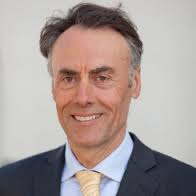 |
| Wim Leereveld |
Big Pharma earned gold stars from patient advocates in 2014, as the industry's top drugmakers did more to get their meds to people in the world's poorest countries. But drugmakers still have loads of room to improve. And even the top-ranked company, GlaxoSmithKline, earned criticism for marketing missteps and corruption charges.
That's according to this year's Access to Medicines Index, an annual report card designed to gauge drugmakers' work to make medicines accessible and affordable. The report identifies "a tailored path for each company to follow in order to maximize its opportunities for improving access to medicine," Wim Leereveld, founder and CEO of the Access to Medicine Index, said in a statement. "Our analysis shows that all companies can do more."
Despite a hefty bribery settlement in China, Glaxo ($GSK) held onto its top spot for the fourth year in a row. The survey credits the drugmaker's consistent wins to its innovative pricing strategies and R&D. The company uses tiered pricing on its vaccines, for instance. And in Africa, it's crowdsourcing research on drug side effects, with a program that allows patients to report adverse events using low-tech devices. The company's China scandal did not factor into this year's rankings; nearly all 18 pharma players on the list have faced bribery or corruption allegations within the last two years, the Index notes.
Nipping at GSK's heels is Novo Nordisk ($NVO), which jumped from the number 6 spot in 2013 to the number two spot this year. Novo uses tiered pricing around the world, and it's also experimenting with new business models to make insulin products more accessible in India and some African countries, the report says.
Ringing in in places three through five are Johnson & Johnson ($JNJ), Novartis ($NVS) and Gilead ($GILD), all companies with proven track records when it comes to delivering meds to poor countries. J&J carved out a new R&D group in January called Janssen Global Public Health to develop and distribute a portfolio of therapies specially tailored for developing countries and has since rolled out a new pill for treating multidrug-resistant tuberculosis. In September, Gilead inked a licensing deal with 7 companies including Mylan ($MYL) and Ranbaxy to bring a low-cost copycat of its hep C wunderkind Sovaldi to 91 of the world's poorest nations.
Rounding out the top 10 are Japanese drugmakers Astellas Pharma, Daiichi Sankyo and Takeda Pharmaceutical. Eisai managed to rise in the ranks and snag the number 11 spot--a jump from its number 15 position last year.
Despite some obvious progress, the pharma industry still falls short in many ways, the Index report contends. More than half of the products under development target just 5 diseases, with little attention paid to many maladies endemic in poor countries. Pricing strategies and plans to make newer products available quickly are also lagging behind.
"There is still much to do," Leereveld said in the report. "Yet, I see that companies are willing to learn from each other and to share their experiences. And that gives me confidence that we will continue to see progress in the years to come."
- read the Access to Medicine Index release
- and here's the Access to Medicine Index report (PDF)
Special Report: Top 10 Drugmakers in Emerging Markets - GlaxoSmithKline - Novo Nordisk - Johnson & Johnson